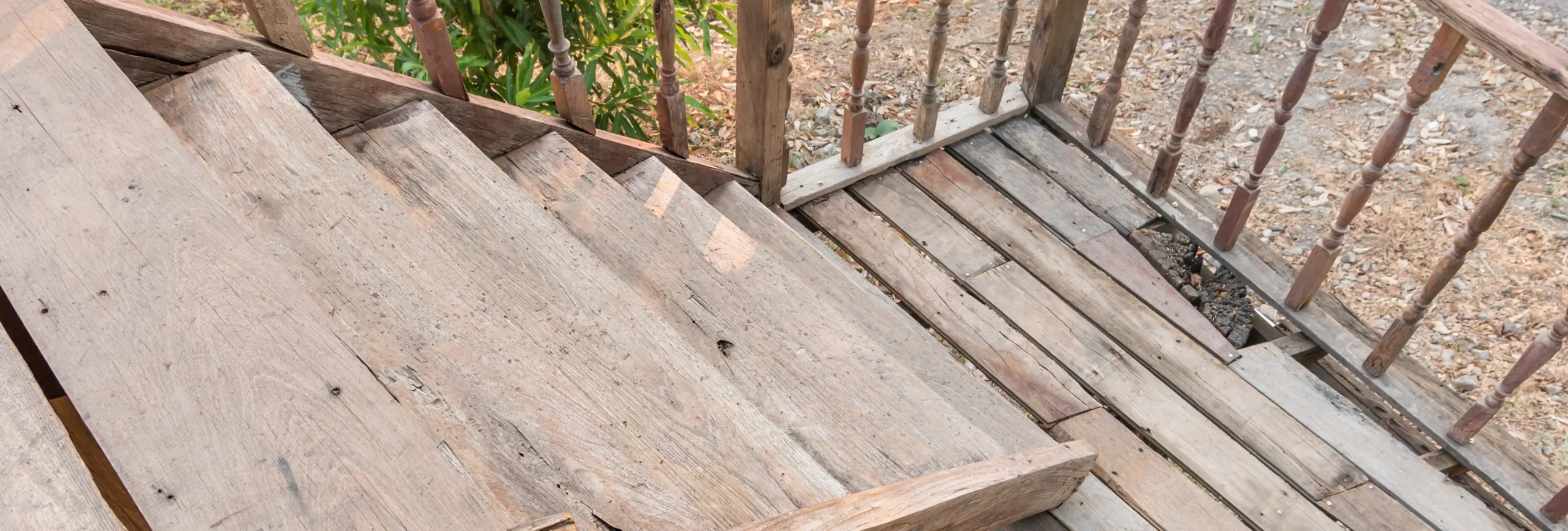Your Maine Slip & Fall Liability Lawyers
For slip and fall injuries in Maine, let us be your advocate
Get Help Now. Schedule A Free Case Review Today!
Navigating Slip and Fall Claims: How Experienced Attorneys Prove Negligence and Secure Justice
Claims involving slip and fall liability might be difficult because of the details involved and where the accident occurs. It may be challenging to establish the property owner’s negligence and legal duty of care. Additionally, the property owner’s insurance company may try to deny the obligation of the property owner to keep the premises safe.
Experienced slip and fall attorneys are aware that there are many ambiguities in premises liability cases regarding what constitutes a reasonably safe environment and what standard of care was provided to the injured party. For these reasons, it is important to hire an attorney after a slip and fall accident. The trial attorneys at Berman & Simmons will know how to properly handle your claim and will hold the proper party responsible, regardless of where the incident occurred.
What is Slip and Fall Liability?
Slip and fall accidents fall under "premises liability," a legal concept holding property owners responsible for maintaining safe environments. Visitors have a reasonable expectation of safety, and when that is not met, victims may file a premises liability claim. In Maine, property owners are required to ensure their property is free from hazards that could harm lawful guests. Maine premises liability cases consider several factors, including whether the victim was lawfully on the property, the owner's knowledge of dangerous conditions, and whether both parties acted with reasonable care. These elements align with laws in other states, aiming to hold property owners accountable for injuries caused by negligence.
Liability in Slip and Fall Accidents
Property owners may be held liable for any injuries sustained on their property if those injuries are a direct result of their negligence. Every property owner has a legal obligation to maintain their property with reasonable care and to ensure that it is safe for others who come onto the property lawfully, such as guests, visitors, customers, and patrons.
Sometimes it depends on where you had your slip and fall accident and if it was a person or company that owns the property. For example, if you are injured visiting someone else’s home, it may be the homeowner or renter who is held liable. Other times, the responsible party can be a business entity, such as a sole proprietorship, LLC, or corporation. In rare situations, another third party can also be liable for your slip and fall accident injuries.
There may be situations where someone has created a hazard on a property, and the owners are not aware or have not had time to fix it. In these situations, whoever created the hazard and did not fix or warn of the danger, can be held responsible. However, it is often difficult to track down who actually caused the hazard in order to bring a claim against another party.
Who is Liable in a Slip and Fall Accident at a Store?
Many slips, trips, and falls happen at stores. The store owner, whether they are an individual, a partnership, a corporation, or any other type of corporate entity, is often the defendant in a lawsuit over an in-store slip and fall.
A slip-and-fall lawsuit may be filed in some cases against the property owner or the person in charge of inspecting and maintaining the property if the store owner does not own the property where the injury happened.
It is also important to note that the business owner can be held liable for the slip and fall victim’s injuries when the store’s employees were negligent. This is known as the legal principle of respondeat superior. From Latin, respondeat superior translates to the master must respond/answer. This phrase is used to represent the legal definition of respondeat superior, which holds that the legal principal (like an employer) is responsible for the acts of an employee or agent and will be held responsible for their subordinates’ negligent actions.
Who is Liable for a Slip and Fall Incident on Private Property?
If you slip and fall on someone else’s property due to their negligence, you have the right to pursue legal action. Property owners are obligated to maintain safe environments for their guests, and failing to do so can make them liable for injuries. A claim can help you recover damages for medical bills, pain, and suffering resulting from the incident.
Negligence occurs when a property owner fails to act with reasonable care to prevent hazards. This includes risks like uneven surfaces, wet or waxed floors, loose flooring, poor lighting, or tripping hazards. Private property, such as homes, apartment buildings, or corporate spaces, may fall under this liability if owners neglect their duty to ensure guest safety.
Liability for Slip and Fall Accidents on Public Property
Many slips, trips, and falls occur in public areas owned by a municipality, county, or state. These may include public parks, sidewalks, streets, public parking lots, beaches, trails, and paths All of these outdoor public areas require a certain amount of upkeep, and governments don’t always do an adequate job to maintain them in safe condition for visitors. Unfortunately, Maine law restricts when you can sue the government for a slip and fall accident on public property.
There are some instances where maintaining certain outdoor public spaces belong to a private business, like a landscaping company, plow service, or private contractor.
The laws governing sidewalk upkeep will vary from town to town in Maine. The majority of towns will require property owners to keep up the sidewalks that border their buildings. Private property owners in many parts of Maine are required by law to maintain their neighboring sidewalks in a fairly safe condition. This includes patching up potholes, cracks, and uneven pavement. Additionally, it entails clearing walkways of debris and shoveling snow or ice.
According to court rulings, local and state governments are not liable for falls at public buildings unless governmental officials have actual or constructive knowledge of the hazardous condition or defect at the building.
Maine Court Rulings Regarding Public Property Slip and Fall Accidents
Over the last few years, there have been a few rulings to go through the Supreme Judicial Court in Maine that have ruled on government liability when a person sustains injuries on public property. Recently, many of these cases have come down to whether or not the location of the fall was in a public building or an integral part of the public building known as an “appurtenance.”
The first ruling comes from McDonald v. City of Portland: This case came from the appellee sustaining an injury outside police headquarters. The injured party sustained injuries after falling on a patch of ice outside the Portland Police Department headquarters. The area was a paved plaza that extended from the entrance of the building and is partially covered by the building’s roof. The court ultimately decided that the Police Department was liable and could be sued for the injuries because the hazardous plaza surface was affixed to the building and seen as more of an annex or extension of the building.
The second ruling comes from Klein v. University of Maine Systems: Here, the court granted immunity to the University as a governmental organization and said they could not be sued. The injury sustained happened when a student slipped and fell in a parking lot of the University. The court reasoned that because the parking lot was not an integral part of any building or structure it could not be considered an appurtenance, and, therefore, the public University could not be held liable.
Classification of Slip and Fall Victims
Property visitors fall into one of three basic legal classifications: invitees, licensees, and trespassers.
Property owners owe a different duty of care to each type of visitor. The highest duty of care is owed to invitees, and the lowest duty of care is owed to trespassers.
Invitees
An invitee is someone that is invited onto a premise and remains within the scope of their invitation. There are two types of invitees:
- Public Invitee: someone who is on the premises as a member of the general public, where the premises are held open to members of the public, but only if they are there for the particular purpose for which the premises are held open to the public.
- Business Invitee: someone who is on the premises with the landowner’s permission and for some business-related purpose connected with the business dealings of the landowner.
If the invitee strays to a part of the property that is not reasonably related to why they were invited, , then he is no longer an invitee but now a trespasser.
A property owner owes the duty of care to warn invitees of any danger and to make the premises safe. A property owner owes invitees an affirmative duty to inspect the property for dangerous conditions. The landowner must use reasonable care to search for and anticipate dangerous conditions, warn of them, and make them safe for invitees.
Licensees
Someone who is on the premises with the landowner’s permission but does not meet the precise definition of invitee is a licensee. A licensee is also sometimes called a social guest. A property owner owes licensees a duty of care below that of an invitee.
The duty of care owed to a licensee is to warn and make safe any dangerous conditions. Foreseeable dangerous conditions which are or should be known to the landowner and which the landowner knows or should know must be relayed to a licensee.
Additionally, the landowner must use reasonable care in conducting activities on the premises while a licensee is present. They must make the area safe and warn of any known dangers. If the property owner does not take reasonable care to do so, they will be held liable for any injuries to licensees.
Trespassers
A trespasser is anyone who is on the property without consent from the landowner. Even if the person did not intend to trespass onto the property, they will still be classified as a trespasser for purposes of determining the landowner’s duty and liability for their injuries.
The only way a property owner owes a duty to trespassers is if they are children or if the property owner had reason to know that the trespasser was on the premises. A landowner must refrain from causing any intentional or reckless injury to trespassers, but there is no duty to make the premises safe or to use any kind of care in activities not to endanger unknown adult trespassers.
There are exceptions when a landowner may owe a duty of care and that is if there is a dangerous condition that the landowner reasonably should know of that poses a serious risk of death or bodily harm or that they know trespassers to frequent a very specific area and that the area is likely to be discovered.
Example of Slip and Fall Liability in Maine News
A woman was hiking on a trail to the Prouts Neck Cliff Walk in Maine, according to a recent news article. She leaned on a fence during her hike and the fence broke, causing her to fall 30 feet to her death. The trail runs across private property but, for decades, has been accessible to the public. There are warnings posted that give notice about the dangers of the trail and to proceed at your own assumption of risk.
In general, all landowners in Maine owe guests a duty of reasonable care. If there is a clear threat, the landowner must eliminate it or post a warning. However, Maine, like many other states, has laws that limit a landowner’s legal liability when they allow public access to their land for outdoor recreation. In this situation, the trail area being used for the hike is maintained by the Prouts Neck Improvement Association and grants continuous public use and public rights to use the paths. The Association has posted notices on their website and at the site of the path about the conditions. Ultimately, cases like this may come down to whether the activity taking place on the property meets the definition of “recreational or harvesting activities” under Maine law.
Hiring an Attorney After a Slip and Fall Accident in Maine
After a slip and fall accident, it is important to contact an attorney sooner or later because of the time constraints with premise liability lawsuits. The trial attorneys at Berman & Simmons understand the various duties owed and when to hold someone liable for a slip and fall accident. Contact the trial attorneys at Berman & Simmons by completing the online form.
For the best results, go to the best Maine slip and fall injury lawyers
A Law Firm That Listens
Berman & Simmons is widely recognized as the best personal injury lawyers in Maine and among the best in the U.S., having won many of the largest jury verdicts and settlements ever obtained for injured people in Maine.
Our trial lawyers have won thousands of claims on behalf of those injured in a car accident, and each year we build on that successful track record.
Our attorneys and staff members will take the time to listen to you, work to understand your concerns, and come up with solutions that can make your life better, including obtaining payment for or deferral of your debts until your case is resolved. We help you recover and make sure you receive full compensation for your injuries and loss.
Get Peace of Mind
It never hurts to consult an attorney regardless of whether you decide to move forward.
- Many states have strict deadlines for filing personal injury claims.
- The other insurance company is likely already building their client’s case against you.
- Witnesses may become unavailable and evidence may be lost or degraded with time.
- You’ll need help navigating your medical care and dealing with financial pressures.
- You need peace of mind to focus on your recovery.







